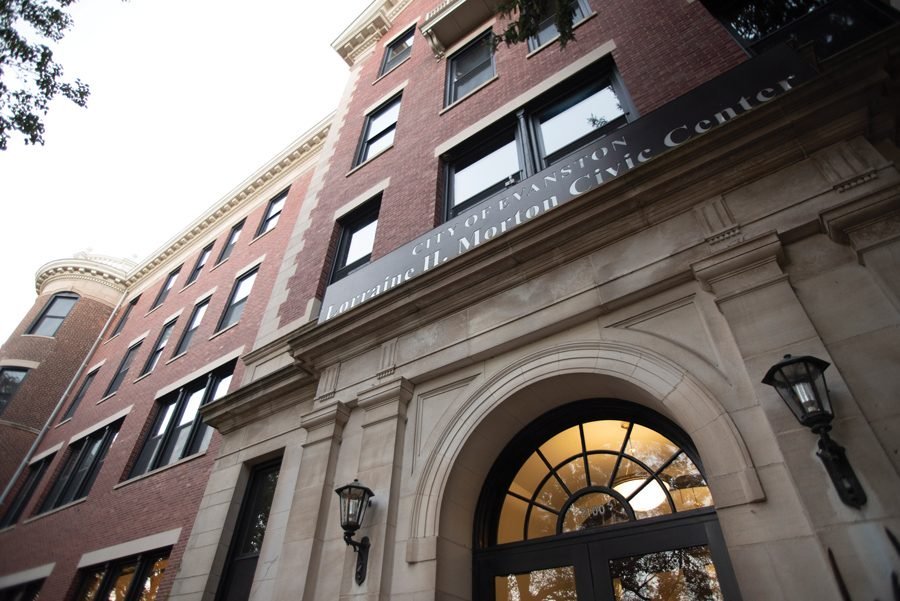Zoning committee discusses ‘brothel law’ in Wednesday meeting
Daily file photo by Colin Boyle
The Lorraine H. Morton Civic Center. The Plan Comission’s zoning committee decided to schedule a meeting next Wednesday to further debate repealing the city’s “brothel law.”
April 20, 2021
The Plan Commission’s Zoning Committee debated a proposal to end Evanston’s “brothel law” Wednesday, with members ultimately deciding to delay any decision on the matter.
The “brothel law,” formally called the three-unrelated rule, does not allow for more than three unrelated people living in one housing unit without a special permit. The law has been criticized by residents and Northwestern students for creating barriers to accessible housing.
Joining Forces for Affordable Housing, an advocacy coalition led by Connections for the Homeless, sent a letter to the committee opposing the rule because of its impact on affordable housing. The letter said the rule limits the ability of people who can’t afford their own housing to reduce their housing costs by sharing housing with orders.
“Sharing housing has always been a survival strategy for people who cannot afford housing on their own,” the letter said. “The 3-Unrelated rule prohibits this strategy, even criminalizes it. By repealing the rule, the City can take immediate action to increase affordable housing opportunities, with no cost in subsidies or programming.”
Committee member Kristine Westerberg said the city shouldn’t care about the relationships between people living in a housing unit. However, she said neighbors may care, prompting the debate.
“When investors snap up a building and rent a unit out to four, five or six unrelated people, that can change the character of a neighborhood over time,” Westerberg said.
Many NU students have pushed for the brothel law to be repealed, arguing the ordinance limits affordable off-campus housing options.
During a February mayoral forum on housing hosted by The Daily, Mayor-elect Daniel Biss said the law is part of a larger housing code that he would like community members to re-examine.
While the law originally passed in 1960, tensions came to a head in 2011 when city officials said they would start enforcing the ordinance. The Zoning Committee discussed a repeal of the Brothel Law in a meeting earlier this year, but took no action on the ordinance because committee chair Jeanne Lindwall said she wanted to better understand real life implications of the change before moving forward.
The committee is slated to resume conversations on the issue on Wednesday, April 28.
Email: [email protected]
Twitter: @yimingfuu
Related Stories:
— Students, city officials seek to change Evanston’s ‘brothel law’
— Proposed reforms to Evanston’s ‘brothel law’ face uncertain future


